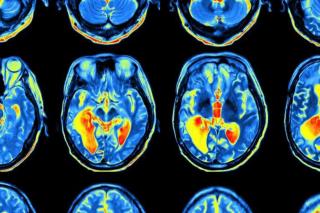“I’ve always been interested in the brain. Ever since I was a teenager, when I saw my grandfather wrestle with vascular dementia, I became very interested in what would cause the brain to do different things as well as how these things can be treated,” says Sandra Bartlett ’26.
A Dix Scholar and transfer student majoring in neuroscience and behavior on the neurobiology track, Bartlett also works full time as a research technician in RNA therapeutics at the Massachusetts Institute of Technology.
Lifelong Learning at Simmons
When Barlett was applying to four-year institutions, a friend of hers vigorously recommended Simmons. When she received the Boston Community College Scholarship, “being able to afford Simmons just made sense and it was such a great [financial aid] package,” she says.
“I also was aware of the many connections between Simmons and the greater Boston research community, namely, the medical community. So, I knew that would also be helpful,” she notes.
Bartlett appreciates the opportunity to go back to school as a more mature student. “I’m thankful that I can be at Simmons to finish my [bachelor’s] degree,” she says. “I came back later in life after having to take a different path, and being able to come back is such a great situation for me It’s so nice to know that there is a warm and welcoming environment [at Simmons].”
Moreover, Bartlett finds that the age difference between her and her peers offers another kind of learning experience. “I am learning a lot from people who are younger than I am and have a different perspective,” she says.
STEM Research Experience
Since January, Bartlett has been conducting research in the laboratory of Assistant Professor Kelsea Gildawie. Specifically, the project examines the effects of prenatal methadone exposure on the brain.
Methadone, a drug similar to morphine, is used as a replacement drug to treat opioid addiction. As Bartlett explains, “We are looking at how prenatal exposure to methadone impacts neuroimmune signaling. Basically, I’m studying the genes that are shaping neural development in the brain as well as inflammation.”
As Bartlett elaborates, “I want to work on the most cutting-edge designs for novel therapies because we are learning so many new things we can use to find better ways to treat neurological diseases. It is very exciting to be part of learning the newest things and being able to apply them in a way that can be eventually used as medicine or as a treatment for people living with these diseases.”
Bartlett’s interest is focused on research and she hopes that her work will contribute to the discovery of new treatments. “More than anything, being able to help people is the most rewarding aspect of this profession.”
Presenting Research in the Neuroscience Field
Beyond the lab and classroom, Bartlett has had the opportunity to present her research at regional conferences. Over the summer, she presented “Does Prenatal Methadone Exposure Alter Expression of Genes Involved in Neuroimmune Signaling in the Prefrontal Cortex and Hippocampus of Male and Female Rats?” at the New England Addiction Neuroscience Research Conference, held at Brown University.
“It was daunting. It was part of a series of short presentations called a data blitz, and I was the only undergraduate who presented there,” Bartlett says of the Brown conference. “But it was so exciting because I had just gotten some data and was able to present it publicly.”
In December, she will present more data from her project at the NeuroBoston, to be held at Tufts University, which is the largest neuroscience conference in the Boston area.
Mentorship and Career Preparation
For Bartlett, Professor Gildawie has been an especially influential mentor. In addition to working with her in the lab, Bartlett serves as a teaching assistant to Gildawie’s “Biological Psychology” (PSYC 201) course.
“Dr. Gildawie has made a huge impact on me,” Bartlett says. “While I already had considerable experience in labs, I’ve learned how to write abstracts and present [research] at conferences. All of which will help me in graduate school and beyond. Her support and mentorship have been amazing.”
Bartlett also received faculty support from Professor and Chair of Chemistry and Physics Rich Gurney and Associate Professor and Chair of Biology Jane Lopilato. “Professor Gurney went out of his way to make me feel very welcome and helped sign off on my pre-requisites,” she says. “They both took the time to give me a tour of Lefavour Hall before I even started at Simmons, which meant a lot to me.”
In terms of her longer-term career goals, Bartlett aspires to obtain a PhD in biomedical sciences and become a scientist who studies therapeutics for neurodegenerative diseases.
“Having mentorship at Simmons has helped tremendously with preparing me for my career,” she says.

